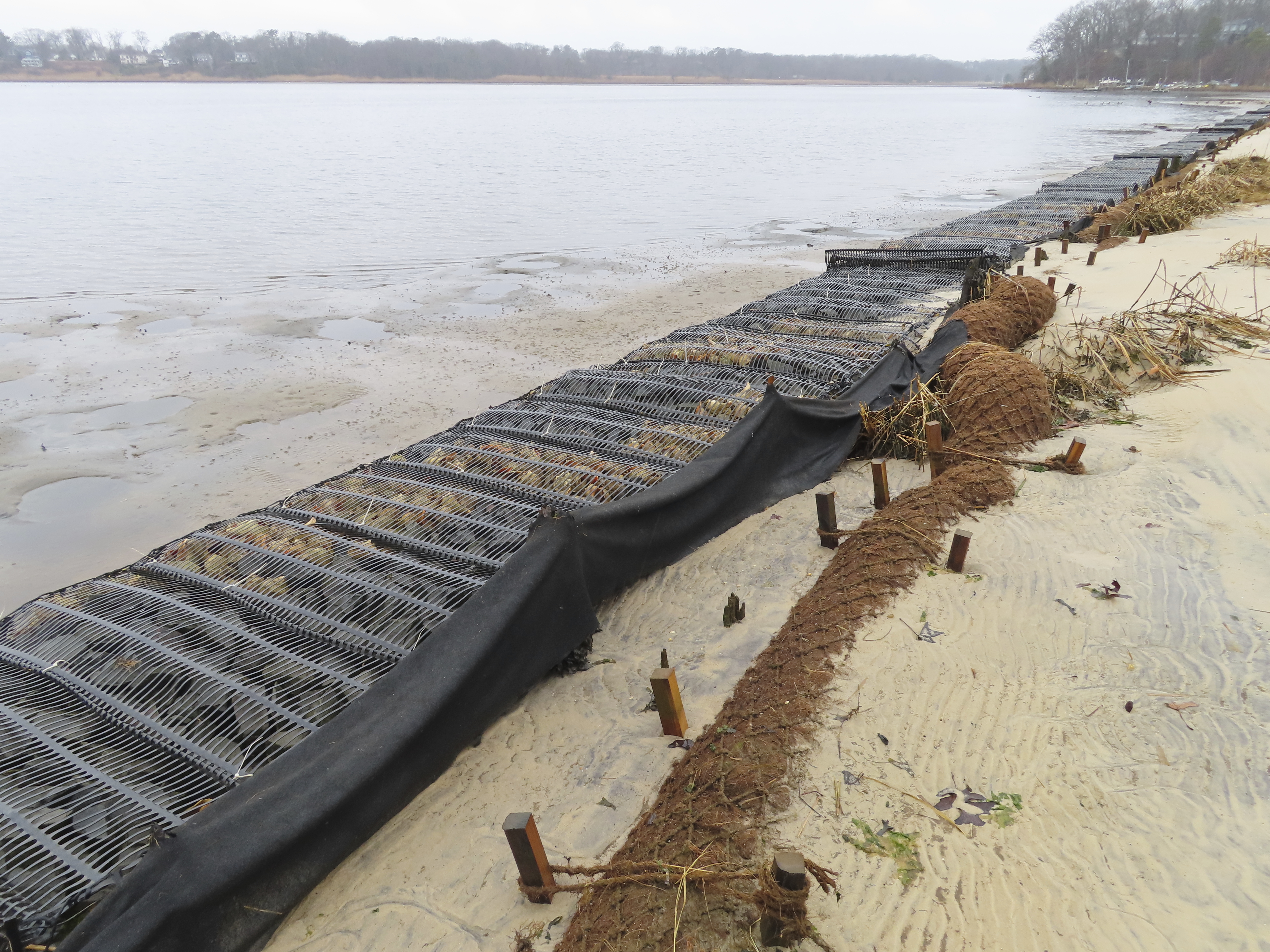The week's good news: March 16, 2023
It wasn't all bad!


- 1. Coconuts are becoming an important part of protecting global shorelines
- 2. Woman starts recycling center at home, helping neighbors combat waste
- 3. Loggerhead turtle helps researchers better understand species' behavior
- 4. New carbon capture technology can turn carbon into baking soda
- 5. 102-year-old fitness instructor gets seniors moving
A free daily email with the biggest news stories of the day – and the best features from TheWeek.com
You are now subscribed
Your newsletter sign-up was successful
1. Coconuts are becoming an important part of protecting global shorelines
Coconuts are increasingly being used around the world to keep shorelines from eroding. Strands of coconut husk, known as coir, can be spun into mats or logs that are flexible and able to be molded on uneven areas of shoreline. The mats and logs hold new plants in place so they can take root, and once the coconut-based materials break down, they leave "the established plants and sediment around them in place to stabilize the shoreline," The Associated Press explains. This can be a cost-effective and sustainable alternative to barriers made of wood, steel, or concrete. The American Littoral Society, a coastal conservation group, is using coir as part of a $1.3 million restoration project of an eroded river bank in Neptune, New Jersey. The organization said the project has "already added significantly" to the shoreline, which was hit hard by Superstorm Sandy in 2012.
2. Woman starts recycling center at home, helping neighbors combat waste
Over the last four years, Liz Pinfield-Wells has recycled 2,600 pounds of waste that her city's garbage collectors won't pick up. The Dawley, England, resident started her own recycling center at home when she learned her baby's food pouches could not be recycled by the city. "Our family has always done what we can, where we can as a household to help reduce our carbon footprint and recycle as much as possible," Pinfield-Wells told SWNS. Since first inviting her neighbors to drop off their trash, dozens have taken Pinfield-Wells up on her offer, and she sorts everything into 30 categories of recyclable waste. She then sends everything to TerraCycle, where it is recycled into small pellets that are turned into items like benches. The money she earns is donated to local causes, including a community garden and her daughter's gymnastics team.
The Week
Escape your echo chamber. Get the facts behind the news, plus analysis from multiple perspectives.

Sign up for The Week's Free Newsletters
From our morning news briefing to a weekly Good News Newsletter, get the best of The Week delivered directly to your inbox.
From our morning news briefing to a weekly Good News Newsletter, get the best of The Week delivered directly to your inbox.
3. Loggerhead turtle helps researchers better understand species' behavior
STAr, a 50-year-old loggerhead turtle, is sharing her "secrets" with conservationists, who plan on using the information to better manage and protect this endangered species. Mon Repos Conservation Park in Queensland has the largest concentration of nesting marine turtles on the eastern Australian mainland, Australia's ABC News said, and STAr has laid 24 clutches of eggs there since 2002. Ranger-in-charge Cathy Gatley said her team wanted to know where STAr lived outside of breeding season, so they outfitted her with a tracking device. Over seven days, she traveled 77 miles south into the Great Sandy Strait, "where her foraging or home feeding ground is, so where she spends the majority of her life," Gatley said. It was "exciting" to discover this, Gatley added. "By STAr giving away some secrets here, she's helping other turtles around her by giving us some information on what she's doing."
4. New carbon capture technology can turn carbon into baking soda
Scientists have discovered a new way to remove carbon from the atmosphere. A new study details a method of direct carbon capture that takes the atmospheric CO2 and transforms it into baking soda, which could then safely be stored in seawater. The research used a hybrid of previous capture methods, creating a system that is three times more efficient. "This simple ability to capture CO2 at a high quantity, in a small volume of material, is a unique aspect of our work," said Arup SenGupta, lead author of the study. "This material can be produced at very high capacity very rapidly." Stuart Haszeldine from the University of Edinburgh called the new method "very powerful," adding that the ocean "has an immense capacity for accessible CO2 storage lasting hundreds to thousands of years."
A free daily email with the biggest news stories of the day – and the best features from TheWeek.com
5. 102-year-old fitness instructor gets seniors moving
If you go to one of Jean Bailey's fitness sessions, be ready to move. Four times a week, the 102-year-old leads her neighbors at Elk Ridge Village, a senior living community in Omaha, in everything from arm stretches to leg raises. She's been running fitness classes for the last 15 years, and started offering more sessions in the last few years to help her community stay active during COVID. Bailey told Good Morning America she encourages her students to do what they can, understanding that some have health issues. "I just tell them I don't care what they do, but move," Bailey said. Her classes usually attract about a dozen participants, and Bailey makes them all feel welcome with her positive attitude, Elk Ridge Village operations director Sean Tran told GMA. "You can't help but want to hang out and spend some time with her," he said.
Catherine Garcia has worked as a senior writer at The Week since 2014. Her writing and reporting have appeared in Entertainment Weekly, The New York Times, Wirecutter, NBC News and "The Book of Jezebel," among others. She's a graduate of the University of Redlands and the Columbia University Graduate School of Journalism.
